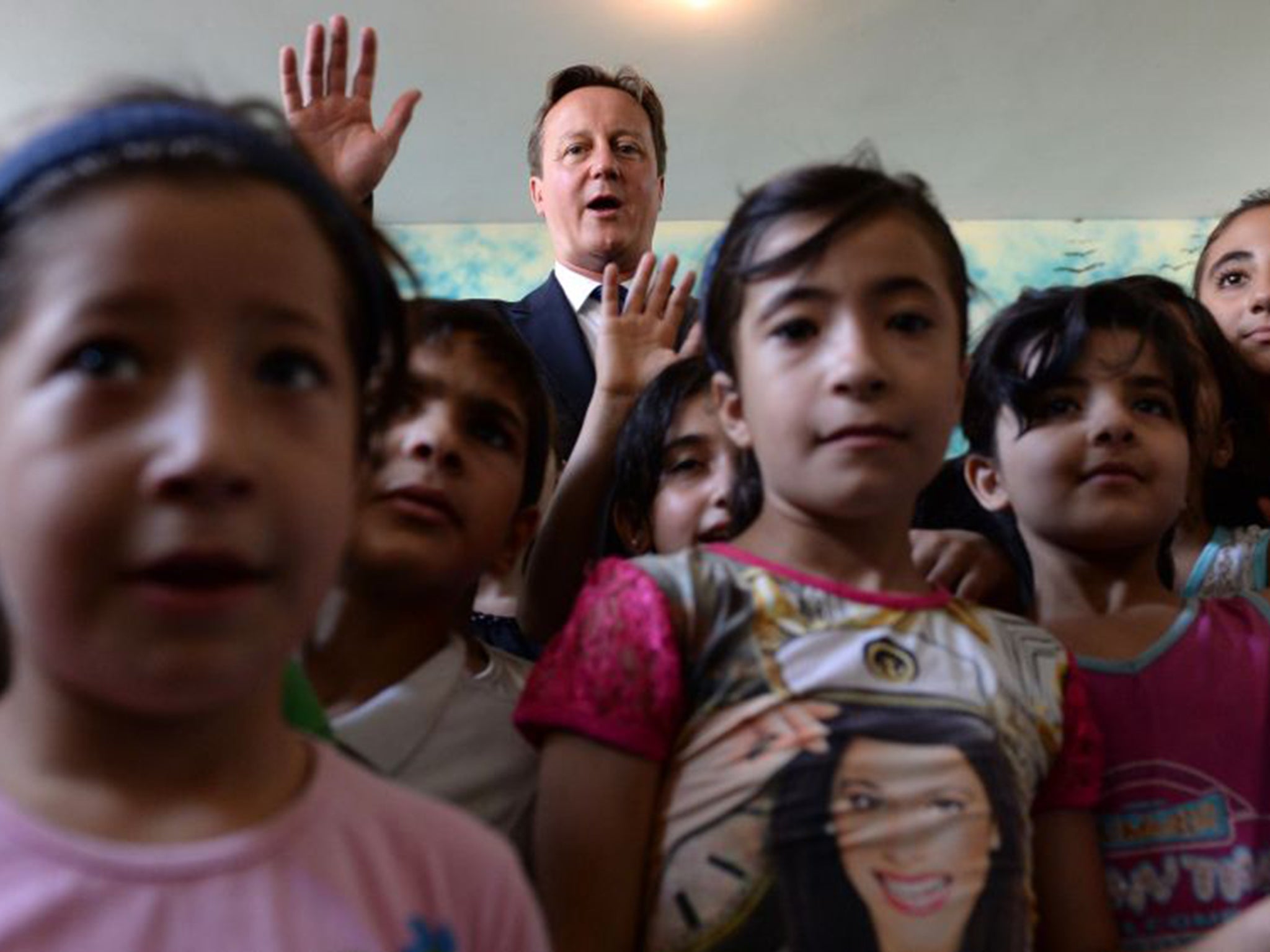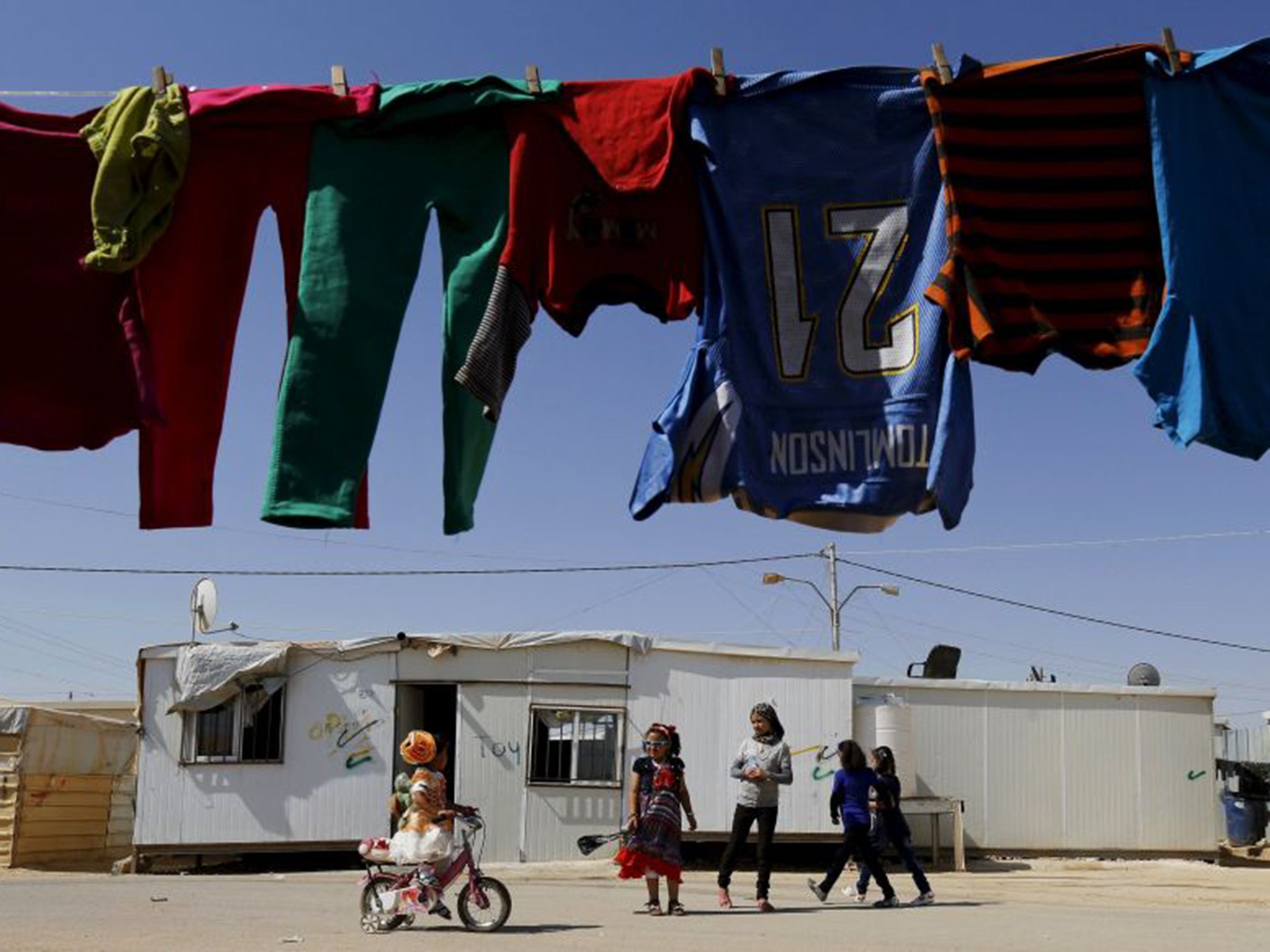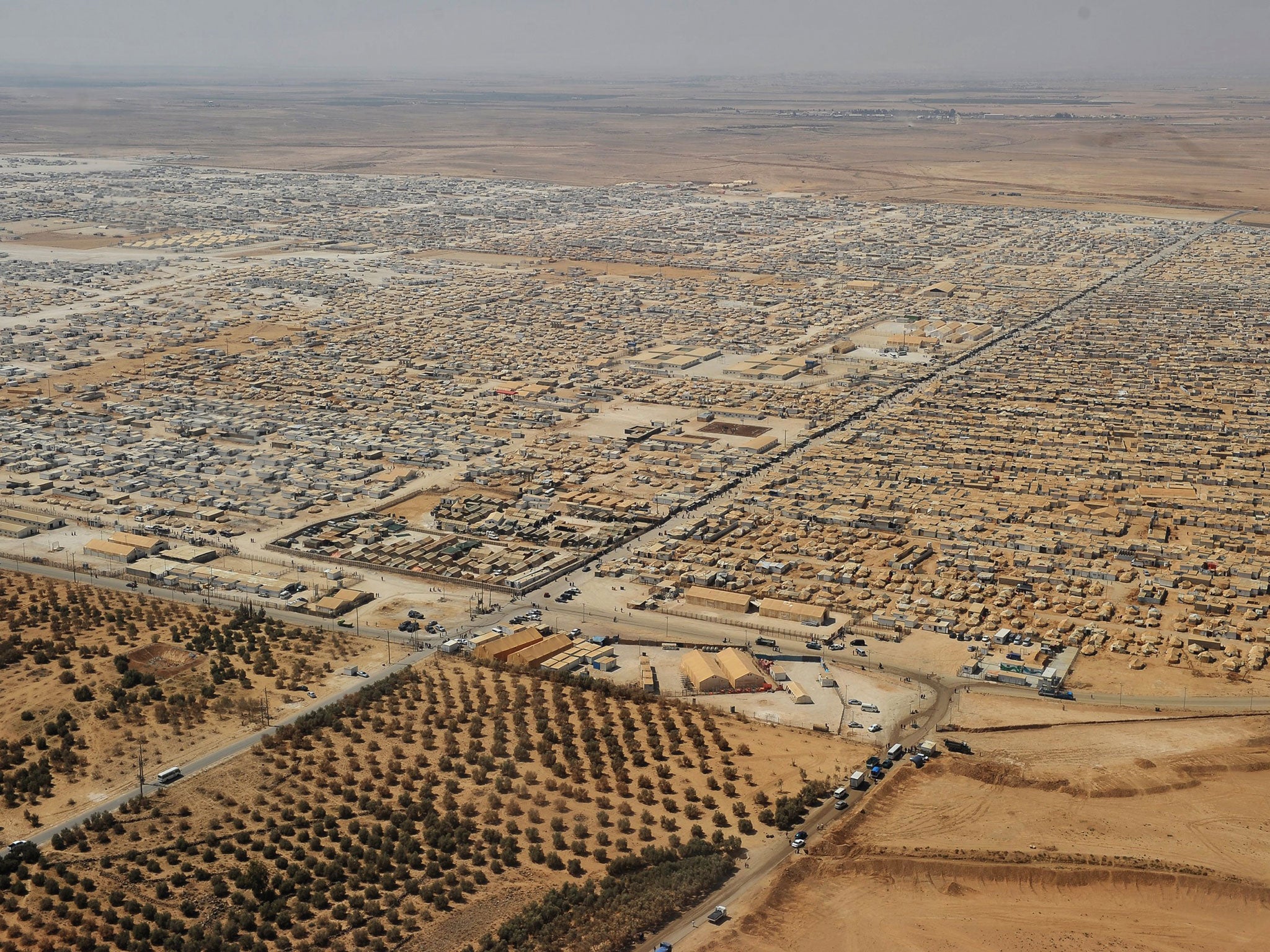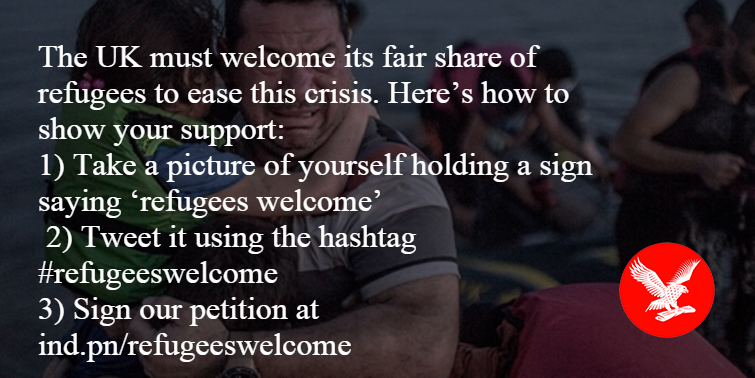Refugee crisis: David Cameron calls for aid spending closer to Syria on whistle-stop tour
Refugees absorb strange sight of Prime Minister on a mission to change minds

In a brightly coloured makeshift classroom David Cameron is chatting to a dozen young Syrian boys whose lesson he has just “dropped in” on. Camera crews, photographers and journalists push and shuffle behind as the Prime Minister makes small talk through an interpreter.
“What could improve your life here,” he asks. “A swimming pool,” replies one young boy. “Grass to play on,” answers another.
“What do you want to do when you grow up?”
“Be a teacher,” replies one. “Well at least you don’t want to be a pop star or a footballer,” Mr Cameron quips.

The class seems suspiciously small for a refugee camp of 80,000 – where over half are under 18. The “teacher” seems to speak suspiciously good English as she translates what the boys are saying to the Prime Minister.
In fact she wasn’t the real teacher at all – the real teacher came back after Mr Cameron had left. Welcome to refugee camp – and refugee crisis – by photo-opportunity. And a whistle stop one at that.
Covering two countries (Lebanon and Jordan) in less than six hours each, Mr Cameron managed to cram in visits to three refugee families, a school, the Prime Minister in Lebanon, along with several stops in the region’s largest refugee camp and a meeting with the King in Jordan. In between there were at least four changes of clothing - suit and tie for the diplomatic chat, then into dark chinos and short-sleeve shirts for the camps.
Elias Bou Saab, Lebanon’s Education Minister, claimed that Isis supporters could be among the refugees going to Europe. He had no hard evidence but said his “gut feeling” was that about 2 per cent could be “radicals”, adding that Lebanese soldiers had been kidnapped by people masquerading as refugees in camps there.
Every moment was meticulously choreographed – both for security reasons and for the message Mr Cameron wanted to project back home.
It was a message hammered home in every media interview: Britain is “pulling its weight” by its international aid commitment – even if it is not prepared to share the burden of the European refugee crisis. To the aid sceptics there was a subtly different message: This money is being spent to stop more refugees coming to Britain and Europe – so aid spending is in the national interest.
There was also a message to other European leaders: there was a “moral imperative” to help refugees not just in Europe but those closer to Syria. The UK spends 10 times more than France on such aid. “Britain has spent a billion helping these refugees and now other countries need to follow our lead.”
This was not David Cameron’s first trip to the Zaatari refugee camp in Jordan. However, he was unlikely to recognise it. When he last visited it three years ago it was home to 23,000 Syrian refugees. Today it has more than tripled in size and accommodates 80,000 men, women and children – crammed into an area that covers just over one square mile.
Mr Cameron announced that Britain would give another £6m to help Jordan cope with the refugee influx, out of a total extra £100m for the region.
To put that figure in context: £6m is just £9.20 for each of the 629,000 Syrian refugees in the country. Jordan in contrast is predicted to have spent £2.7bn coping with the refugee crisis, compared to the £220m given in total by Britain in the same period.
In Zaatari one in five of the refugees live in garages, chicken houses and tents and the situation is deteriorating. The World Food Programme has halved its assistance to Syrian refugees because of a $341m (£221m) funding shortfall.
“Syrian refugees in Jordan have entered a downward spiral in terms of their ability to sustain themselves,” Andrew Harper, the UNHCR representative has said. “We are concerned that this will deteriorate even further.”

When Mr Cameron visited in 2012 he said he had been deeply affected by what he had seen. Asked how he felt three years on, he replied: “It’s very depressing the scale of the challenge we’re facing.
“But it makes me think how right Britain was in supporting these camps and these refugees. This is not some recent thing we have discovered.”
And he’s right about that. Outside the gated part of the camp which contained the school room, a much larger group of children and teenagers hung around absorbing the strange scene.
One slightly older girl understood a bit of English. “What’s it like here,” we asked? She scrunched up her face and put her hands in front of them.

Join our commenting forum
Join thought-provoking conversations, follow other Independent readers and see their replies
Comments
Bookmark popover
Removed from bookmarks